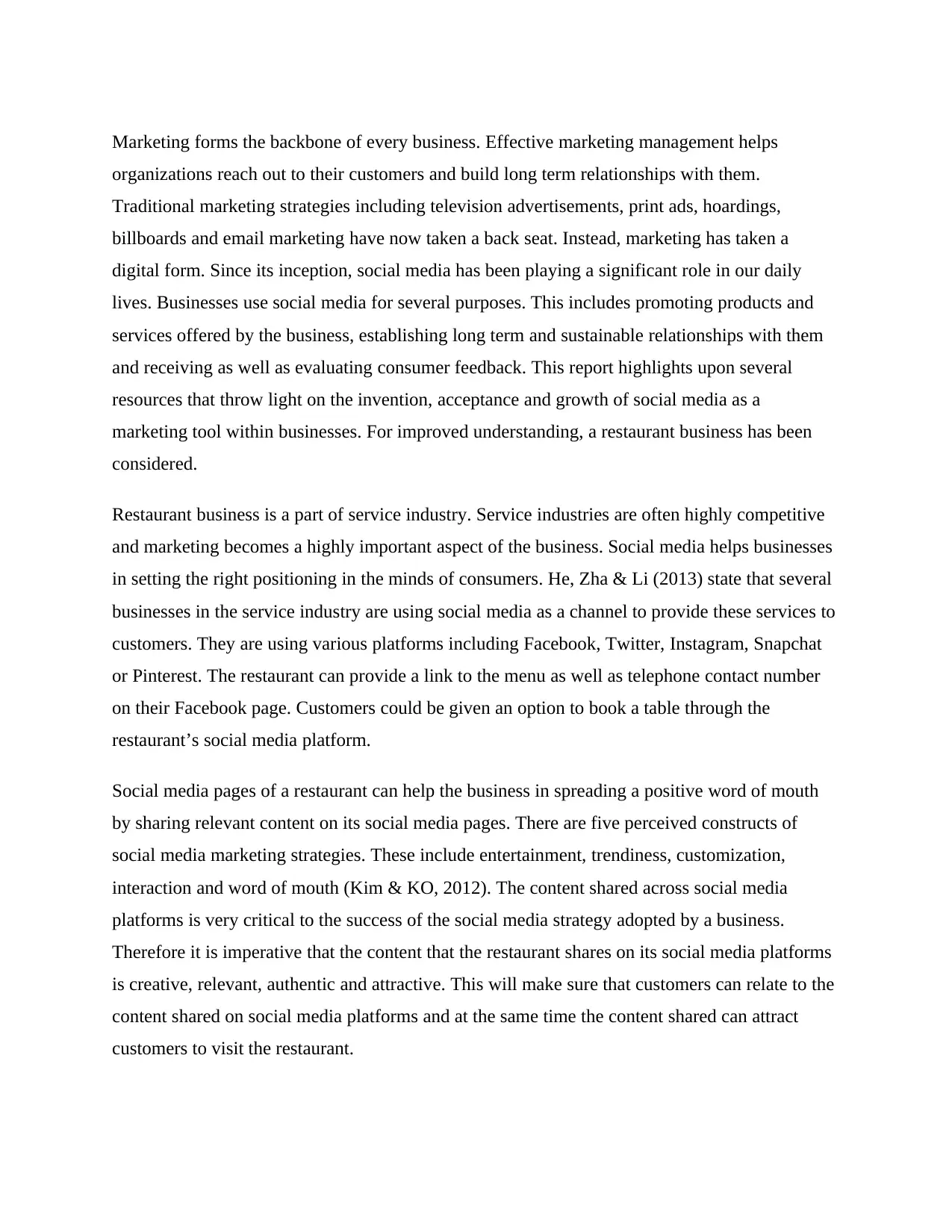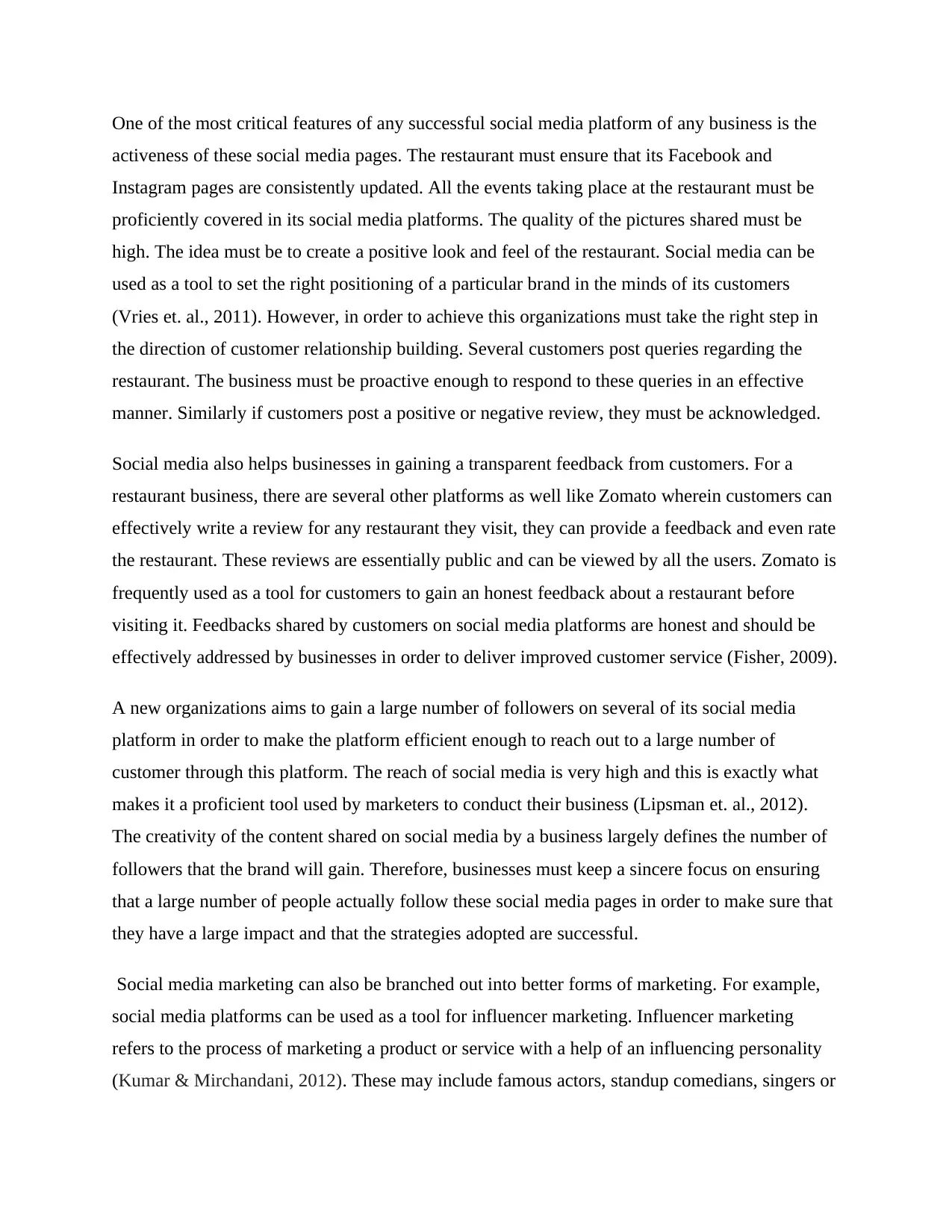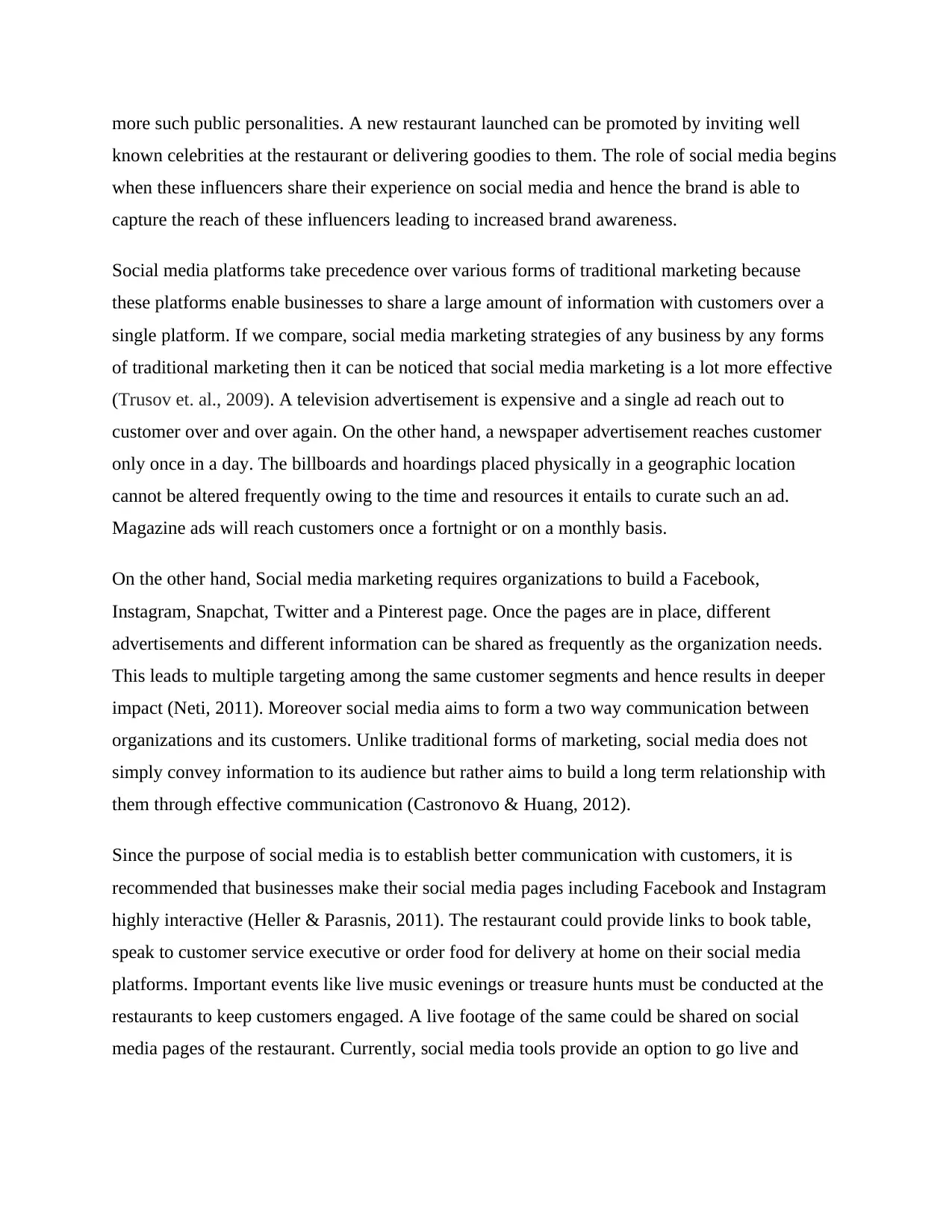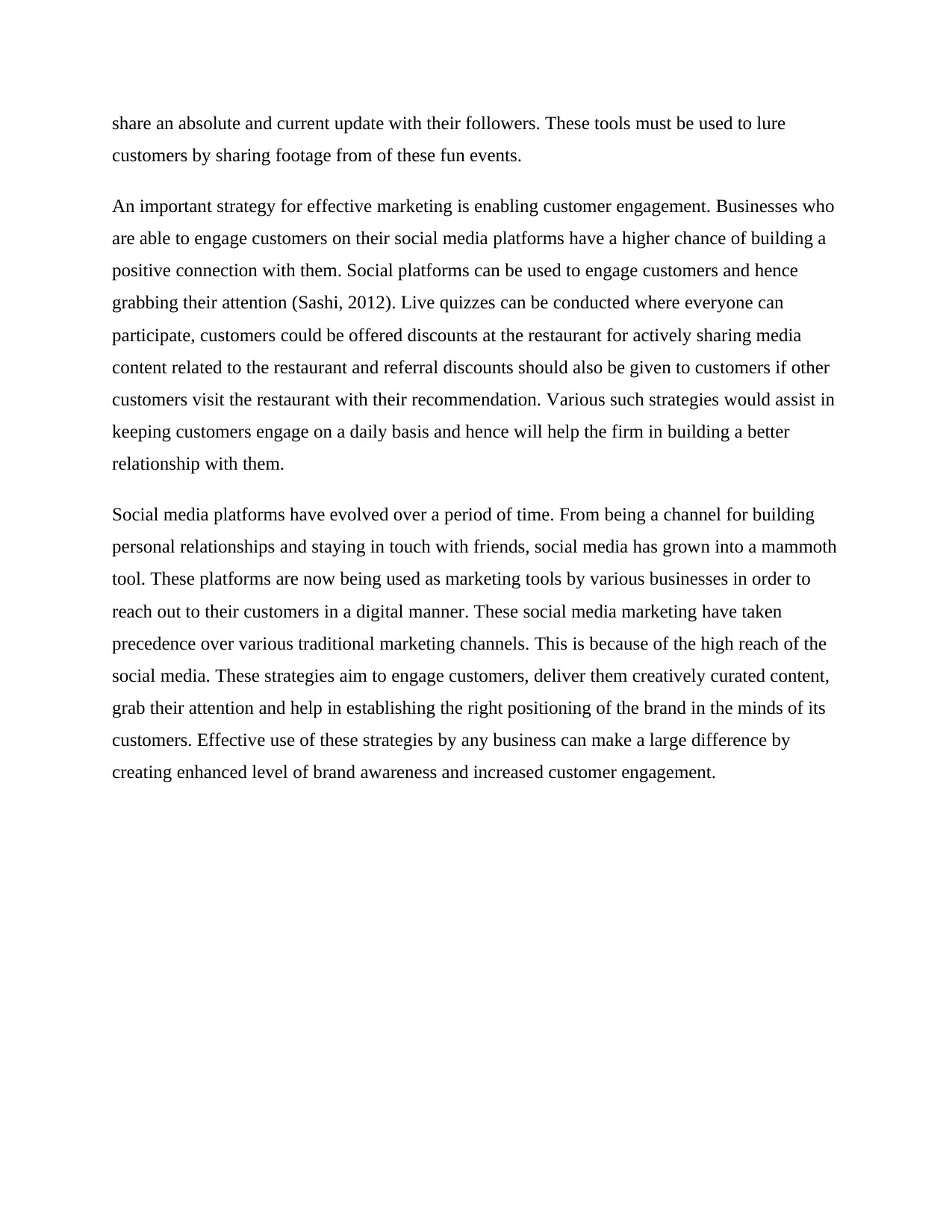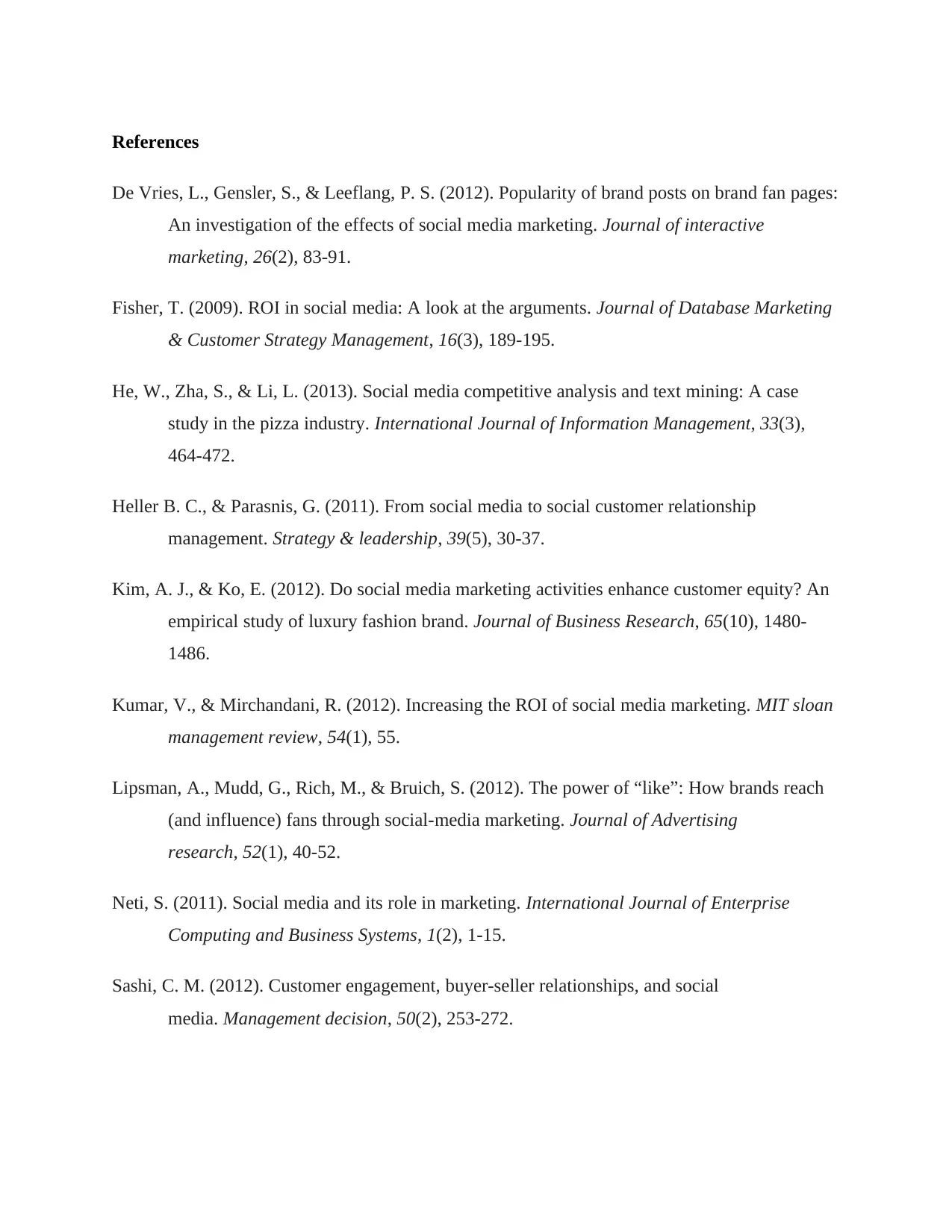This report highlights upon several resources that throw light on the invention, acceptance and growth of social media as a marketing tool within businesses. For improved understanding, a restaurant business has been considered. Social media helps businesses in setting the right positioning in the minds of consumers. The content shared across social media platforms is very critical to the success of the social media strategy adopted by a business. Social media pages of a restaurant can help the business in spreading a positive word of mouth by sharing relevant content on its social media pages. Social media also helps businesses in gaining a transparent feedback from customers. Social media marketing can also be branched out into better forms of marketing. Social media platforms take precedence over various forms of traditional marketing because these platforms enable businesses to share a large amount of information with customers over a single platform. An important strategy for effective marketing is enabling customer engagement. Effective use of these strategies by any business can make a large difference by creating enhanced level of brand awareness and increased customer engagement.
![[object Object]](/_next/static/media/star-bottom.7253800d.svg)
![[object Object]](/_next/static/media/star-bottom.7253800d.svg)

